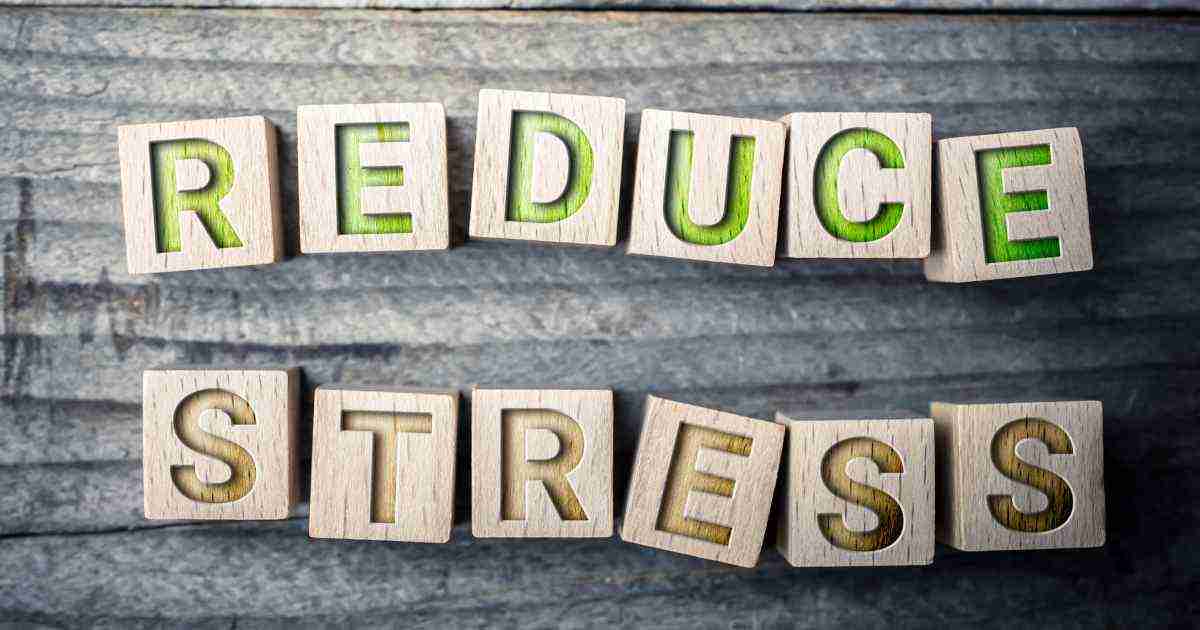Introduction
In the whirlwind of today’s rapid-fire existence, Reduce stress has nestled itself as a persistent companion in our lives. The relentless pressure from our professional realms, personal hurdles, or the exigencies of our contemporary living, swiftly seeps into our physical and mental sanctuaries, threatening our equilibrium. Yet, it’s vital to debunk the myth that stress is an inexorable destiny. By embracing a suite of tried-and-true strategies and molding our lifestyle accordingly, we can markedly pare down stress, paving the path to a more tranquil and rewarding existence. In this narrative, we’ll traverse through five potent avenues to alleviate stress and recapture your serene core.
1. Practice Mindfulness Meditation
What is mindfulness meditation?
Mindfulness meditation is a technique rooted in ancient Buddhist practices that has gained popularity recently for its remarkable stress-reduction benefits. It involves focusing on the present moment and non-judgmentally observing your thoughts, feelings, and sensations. By doing so, you can gain greater control over your mind and reduce the negative impact of stress.
How does mindfulness reduce stress?
Mindfulness meditation works by training your mind to stay in the present moment, rather than dwelling on past regrets or worrying about the future. This practice helps break the cycle of rumination and anxiety that often accompanies stress. Over time, mindfulness can lead to increased self-awareness and a more balanced perspective on life’s challenges.
Getting started with mindfulness meditation:
- Find a quiet, comfortable space where you can sit or lie down.
- Set a timer for a short duration, like 5-10 minutes, to begin.
- Close your eyes and focus on your breath. Notice the sensation of each inhale and exhale.
- When your mind wanders (as it inevitably will), gently redirect your focus back to your breath without judgment.
- Gradually extend the duration of your meditation sessions as you become more comfortable with the practice.
2. Exercise Regularly
The connection between exercise and stress:
Engaging in consistent bodily movement stands as a formidable adversary to stress. With every bout of exercise, your physique liberates endorphins, serving as organic elevators of your mood. Besides, exercise acts as a sieve, filtering out the stress hormones such as cortisol from your system, fostering a haven of tranquility and wellness within you.
Choosing the right exercise routine:
The quintessential workout regimen is one that sparks joy and is tenable over the long haul. It could span a spectrum from the rhythmic strides of jogging and the freewheeling spirit of cycling to the soul-soothing stretches of yoga and the ecstatic twirls of dancing. Seek an endeavor that resonates with your predilections and lifestyle rhythm, targeting a minimum of 30 minutes of moderate exertion on the majority of the week’s days.
Incorporating physical activity into your daily life:
- Take the stairs instead of the elevator.
- Go for a walk during your lunch break.
- Try home workouts or online classes for convenience.
- Join a sports team or fitness group for social interaction and motivation.
3. Prioritize Self-Care
The importance of self-care for stress reduction:
Self-care embodies the act of consciously embarking on ventures that foster your physical, emotional, and mental flourishing. It hinges on discerning your needs and carving out moments for endeavors that replenish and revitalize your essence. Elevating self-care on your priority list can act as a bulwark against burnout, arming you with a robust toolkit to navigate the stormy seas of stress.
Creating a self-care routine:
- Make a list of activities that bring you joy and relaxation, such as reading, taking baths, practicing a hobby, or spending time in nature.
- Schedule regular self-care sessions into your calendar.
- Set boundaries to protect your self-care time, and communicate them to others.
- Experiment with different self-care practices to find what works best for you.
Guilt-free self-indulgence: Why it matters:
Many people feel guilty when they take time for themselves, but self-care is not selfish; it’s essential. By caring for yourself, you’ll have more energy and resilience to support others and tackle life’s challenges.
4. Manage Your Time Effectively
Time management and stress:
Poor time management can lead to increased stress and a sense of overwhelm. When you’re constantly rushing and feeling like there’s never enough time, stress levels can skyrocket. However, by learning to manage your time effectively, you can regain control and reduce stress.
Tools and techniques for better time management:
- Create a daily or weekly schedule to allocate time for specific tasks and activities.
- Use productivity techniques like the Pomodoro Technique (working in focused intervals with short breaks) to stay efficient.
- Prioritize tasks based on importance and urgency.
- Delegate tasks when possible and learn to say no to commitments that will overwhelm you.
Setting boundaries and learning to say no:
Part of effective time management involves setting clear boundaries and not overcommitting yourself. Learning to say no when you have too much on your plate is a vital skill for stress reduction.
5. Build a Support System
The power of social connections in stress reduction:
At our core, we humans are woven with social threads, and the tapestry of our interactions profoundly molds our mental and emotional landscapes. Cultivating and cherishing a network of support can gift you a treasured reservoir of solace and resilience amidst the tempests of stressful epochs.
Nurturing existing relationships:
- Reach out to friends and loved ones regularly, even when you’re not in crisis.
- Practice active listening and offer support to those in your network.
- Seek opportunities for social interactions, whether through clubs, volunteering, or joining community events.
Seeking professional help when needed:
At times, stress might morph into a towering tide, making it crucial to extend your hand for professional guidance. A therapist or counselor can equip you with a quiver of strategies and insights to adeptly rein in stress, and delve into any root concerns fuelling your stressful visit.
Conclusion
Stress is an inevitable part of life, but it doesn’t have to control or overwhelm you. By practicing mindfulness meditation, incorporating regular exercise, prioritizing self-care, managing your time effectively, and building a support system, you can significantly reduce stress and improve your overall well-being. Remember that stress reduction is a journey, and it’s okay to seek help when needed. With dedication and the right strategies, you can find inner peace and live a happier, healthier life.
FAQs
Q. What is the difference between stress and tension?
A. Stress is a natural response to a specific situation or challenge, while anxiety is a more general feeling of unease or worry that may not have a specific trigger. Anxiety often lingers and can interfere with daily life, while stress is typically tied to a specific event or circumstance.
Q. How long does it take to see the benefits of stress reduction techniques?
A. The timeline to witness the fruits of stress-alleviating methods can oscillate widely among individuals. Some may bask in instant relief, while for others, a more extended span of relentless practice stretching over weeks or months might be the ticket to discerning substantial shifts. Here, patience coupled with steadfast persistence holds the scepter.
Q. Can stress reduction techniques help with chronic stress?
A. Yes, stress reduction techniques can be effective for managing chronic stress. While they may not eliminate chronic stress entirely, they can significantly improve your ability to cope with it and reduce its negative impact on your health and well-being.
Q. Are there any natural supplements that can help reduce stress?
A. Specific natural concoctions, like ashwagandha, valerian root, and lavender, have been recognized for their gentle stress-dissolving prowess. Yet, it’s paramount to engage in a dialogue with a healthcare maestro prior to embracing any supplements, as they might dance a complex tango with your medications or usher in side effects.
Q. Is it possible to eliminate stress completely, or should I aim for better management?
A. It’s unrealistic to eliminate stress entirely from your life, as stress is a natural response to life’s challenges. Instead, the goal should be better stress management. By implementing the strategies discussed in this blog, you can reduce the negative impact of stress and enjoy a more balanced and peaceful life.











